Search Results
Showing results 1 to 20 of 23

Digestion
Source Institutions
In this food science activity, learners explore digestion and proteins by observing the action of meat tenderizer on luncheon meat.
Stacking Dice
Source Institutions
In this math game, learners try to earn the most points by winning stacks of four dice. Learners practice number recognition and addition skills.

Patterns and Relationships: Peddling Petals
Source Institutions
In this math lesson, learners use the setting of a flower-making fundraiser to explore a variety of patterns. Learners examine the patterns in a flower design made of triangles surrounding a square.

Bake Sale
Source Institutions
This activity helps learners learn about math through a real-world scenario. Three friends are baking cookies for their school’s bake sale.
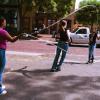
Twirling Rope Frequency
Source Institutions
In this activity (page 1 of the PDF under SciGirls Activity: Double Dutch), learners will stand twelve feet apart swinging a rope at the slowest tempo possible while someone uses a stopwatch to record
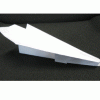
Evolution in Plane Sight
Source Institutions
In this activity, learners model directed evolution by making paper fly. Learners construct and fly paper airplanes.

Chances Are: OH NO! Look Out Below for a UFO
Source Institutions
In this math lesson (on Page 13), learners predict and simulate the likelihood of an event occurring.
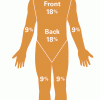
Measuring and Protecting Skin
Source Institutions
In this activity, learners compare and contrast their own skin (including the area covered) with that of an orange.

Chances Are: It's a Mystery to Me
Source Institutions
In this math lesson, learners extend their understanding of basic probability concepts as they learn to name all of the possible outcomes of an event as well as ways to express the likelihood of such
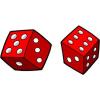
Probability: Chances Are
Source Institutions
In this math lesson, learners identify the likelihood of an event by using a walk-on probability scale.
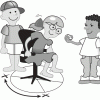
Vestibular-Ocular Reflex
Source Institutions
In this activity, learners will perform various investigations to understand the vestibular-ocular reflex and learn about the importance of visual cues in maintaining balance.
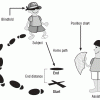
Find Your Way Around Without Visual or Sound Cues
Source Institutions
In this activity, learners play a series of simple games to investigate navigation without visual and sound cues.

Energy For Life
Source Institutions
In this activity about the relationship between food and energy (page 1 of PDF), learners observe and quantify the growth of yeast when it is given table sugar as a food source.

Is it a Fair Game?
Source Institutions
In this math activity, learners play two versions of a card game and decide what makes a game fair. Learners also practice addition and subtraction skills.
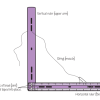
The Power of Togetherness
Source Institutions
In this activity about human anatomy (page 16 of PDF), learners construct a model arm and discover how muscles and bones work together to achieve efficient movement.
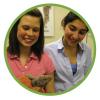
Gecko Feet
Source Institutions
This is an activity (located on page 3 of PDF under Gecko Feet Activity) about modeling a nanoscale phenomenon (gravity-defying gecko feet) with macroscale objects (shoes).
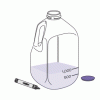
Lungometer
Source Institutions
In this environmental health activity, learners investigate their own vital lung capacities.

Bank It!
Source Institutions
This simple but open-ended math game introduces basic probability concepts using coins and dice. Players roll the dice and collect coins to match the number rolled.
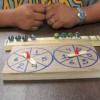
Games of Chance and Brains
Source Institutions
In this activity, learners build and play three math games. In the first game, called "Switcheroo," learners place marbles in holes 1 through 4 and 7 through 10.
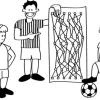
Cryptographic Protocols: The Peruvian Coin Flip
Source Institutions
This activity about cryptographic techniques illustrates how to accomplish a simple, but nevertheless seemingly impossible task—making a fair, random choice by flipping a coin between two people who d
